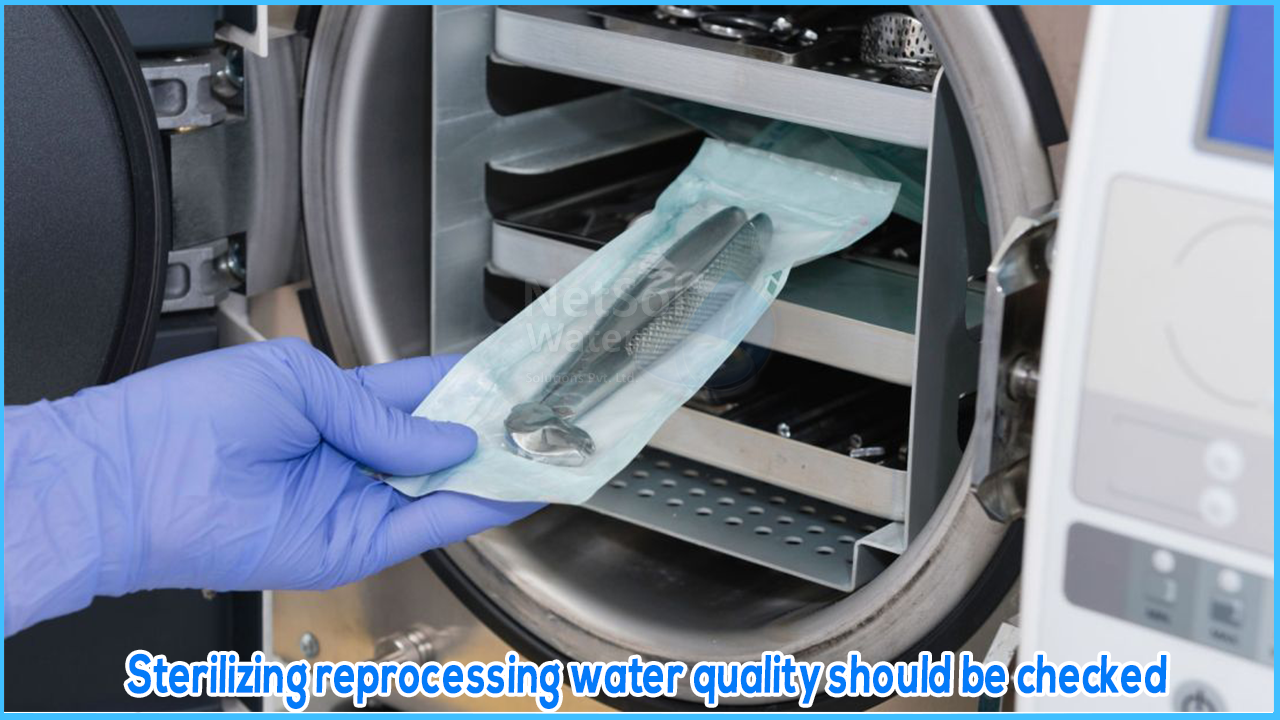It is critical that the Sterile Processing team knows the water quality issues that can contribute to unfavorable patient outcomes and is aware of some of the major indicators that indicate that there may be issues with the water quality. Checking water quality is an interaction designed to ensure that control procedures are functioning properly.
Two general qualities should be considered when preparing water for use in clinical device reprocessing:
- 1. The microbial content of water
- 2. Water's inorganic and organic components
Ensuring adequate water quality in gadget reprocessing necessitates collaboration between the staff who reprocess clinical devices and the faculty who can construct and maintain the water treatment framework.
WATER TREATMENT
Water treatment consists of a variety of water sanitization gadgets and associated funneling, syphons, valves, and measures that work together to generate clean water of a predetermined quality and deliver it to the point of use. The degree to which contaminants (e.g., disintegrated natural and inorganic solids and microbial impurities, ionic, and substance) have been removed from water is referred to as its virtue.
TYPES OF WATER QUALITY NEEDED FOR REPROCESSING
- 1. UTILITY WATER: Water from the tap that may require additional treatment is referred to as utility water. It is used for flushing, washing, and rinsing.
- 2. CRITICAL WATER: Water that has been extensively treated to ensure the removal of microorganisms, inorganic, and organic materials. It is used for the final rinse or steam generation.
EFFECTS OF POOR WATER QUALITY
Impurities in water can have a negative impact on medical device reprocessing
- CONSEQUENCES ON THE PRODUCT:
- 1. It results in Biomass accumulation.
- 2. It increases the microbial load or the endotoxin content.
- CONSEQUENCES OF THE PROCESS:
- 1. Detergents' effectiveness has decreased.
- 2. Water system has been deteriorated (bio-fouling or scaling)
- CONSEQUENCES ON THE PATIENT:
- 1. It can spread infection to the patients.
- 2. It is toxic for the patients.
WHY WATER TREATMENT WITH RO PURIFIED WATER IS IMPORTANT FOR STERILE REPROCESSING?
Water quality is an important consideration at all stages of clinical device reprocessing. The primary goal of clinical device reprocessing is to ensure that a device is safe for patient use and does not cause an unfavorable event in the patient.
It is critical that employees who reprocess clinical devices or use them in strategies, understand how the nature of the office's water can affect the reprocessing equipment as well as the devices and instruments themselves. It is also critical that employees understand that the quality of water should be monitored on a regular basis to ensure that the control gauges installed are functioning properly.




